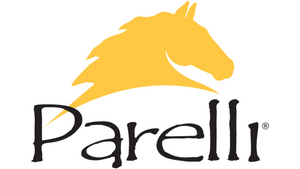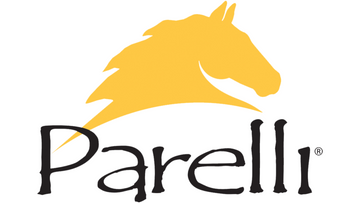Do I Really Want a Horse that is "Dead Broke"?
bis Parelli Natural Horsemanship auf Dec 21, 2022

By Juli Piovesan—4 Star Instructor + Director of Education
I find the horse world at large to be a really unique and interesting place. It’s a culture and a community all its own – quite different from other areas of agriculture and domesticated pet ownership. The equine industry spans both “for profit” and pleasure and includes everything from backyard companions to high end competition animals. And yet the common vernacular, the terminology and descriptions of our equine counterparts span out across this great divide. I have a feeling if you’ve ever stepped foot in a tack store or browsed the classified ads you’ve come across a promotion for a “dead broke” horse.
So what does it mean when we say “a dead broke horse” and why in the world are we as a culture advertising like this is a really good thing? Just to satisfy my own curiosity, I did a quick google search of the term and found definitions that included phrases such as “a horse that can be ridden or driven,” “very experienced, calm, and trustworthy,” “well-trained,” and “good to handle on the ground.” Well, I would have to honestly say that all of those things sound like a good deal to me! Who doesn’t want a trustworthy, well-trained horse?
But I want to pause right here and also point out that I believe words have power, and I really don’t want to hang my hat on any phrase that use negative descriptors like dead or broke. We really can shape perception and shed light on grey areas through intentional choices in our thoughts, words, and attitudes. There are a lot of layers to that last sentence, but for now, as it relates to these words, let’s just brainstorm some other words that may convey a similar concept but with a more positive twist. Here at Parelli Natural Horsemanship, we believe in keeping things positive, progressive, and natural - understanding and working with the laws of nature to culture partnership behavior in our horses. Rather than breaking or even training our horses, we like to use phrases such as “starting a relationship to develop a partnership.” We don’t break our colts. We use communication, understanding and psychology to build positive partnership-based habits and skills.
So, if I got to re-write this age old advertisement for a good old “dead broke” horse, I would say something like “possesses positive partnership-based habits and skills” or “taught to be a partner using love, language and leadership.” Ok, so it’s a little more wordy, but….I like the feel a whole lot better.
Before I wrap this up though, let me take just a minute to delve into why I think this “dead broke” horse is so popular. Having horses in our lives is a risk. Whether we come face to face with this reality as we age or we experience this as youngsters, there’s a certain amount of inherent physical risk that comes with living life alongside (and on top of!) a 1000 pound prey animal. Horses are just bigger, stronger, and faster than us, and their innate tendencies (such as flying from fear) often do not blend well in the human environment (think confined spaces, wash racks, concrete, horse trailers, the list could go on and on). The good news is that horses are quite adaptive and through exposure and experience, humans often have decent luck dodging bullets and not getting hurt in spite of some pretty hairy experiences with our very loved, over-grown squirrels. When we come across a horse who has been exposed to a lot and just easily does well in the human environment or who has an owner that gets him out and about a ton and he’s been there and done that, we like it! We like someone else being the test crash dummy, the one who has tested and proved that the horse is most likely not going to freak out.
But, what if that just isn’t your horse – either nature or nurture has not developed these high levels of confidence? No matter the inherent confidence or experience level of your horse, this is where the Parelli Program becomes your blueprint for building partnership behavior. Using a combination of love, language, and leadership, you can develop confidence, build understanding, and prepare your horse for the unexpected in his human environment. Horses really can learn how to think with the partnership side of their brain and to control their feet and their innate tendency to fly from fear. Of course, exposure and experience will help because horses are pattern animals and they will learn through repetition, but it’s also about you as the herd leader knowing what to do when emotions and behaviors start to unravel in different situations. It’s about preparing ahead of time so that you have a language your horse understands so that you can ask him to stand still or move as needed. It’s learning to stay present and calm in a challenging situation and not allow your emotions to muddle your thought process or change how you’re acting around your horse. You may have already picked up on this, but do you see how it’s a lot of responsibility on us as owners and riders and not just on the horse to act like a partner?
I love this, because it feels balanced. After all, they didn’t pick us. We picked them. We brought them into our human environment filled with all kinds of boundaries and unknow requests and now it’s our job to help them not only survive but thrive as a partner with us. I like how this feels – it feels fair and it feels empowering. Because you don’t have to be one of the lucky ones who magically comes across this “dead broke” horse. You have the ability to help develop any horse into a confident, skilled partner. Yes, it’s a journey rather than a quick buy or a quick fix. But, if you have the right attitude and you’re willing to invest the time, it’s the journey of lifetime.








This is so true and comes natural to many people that already have the aptitude and mind. Before getting a horse it should be mandatory to understand what it takes.
(Horse driving license?)